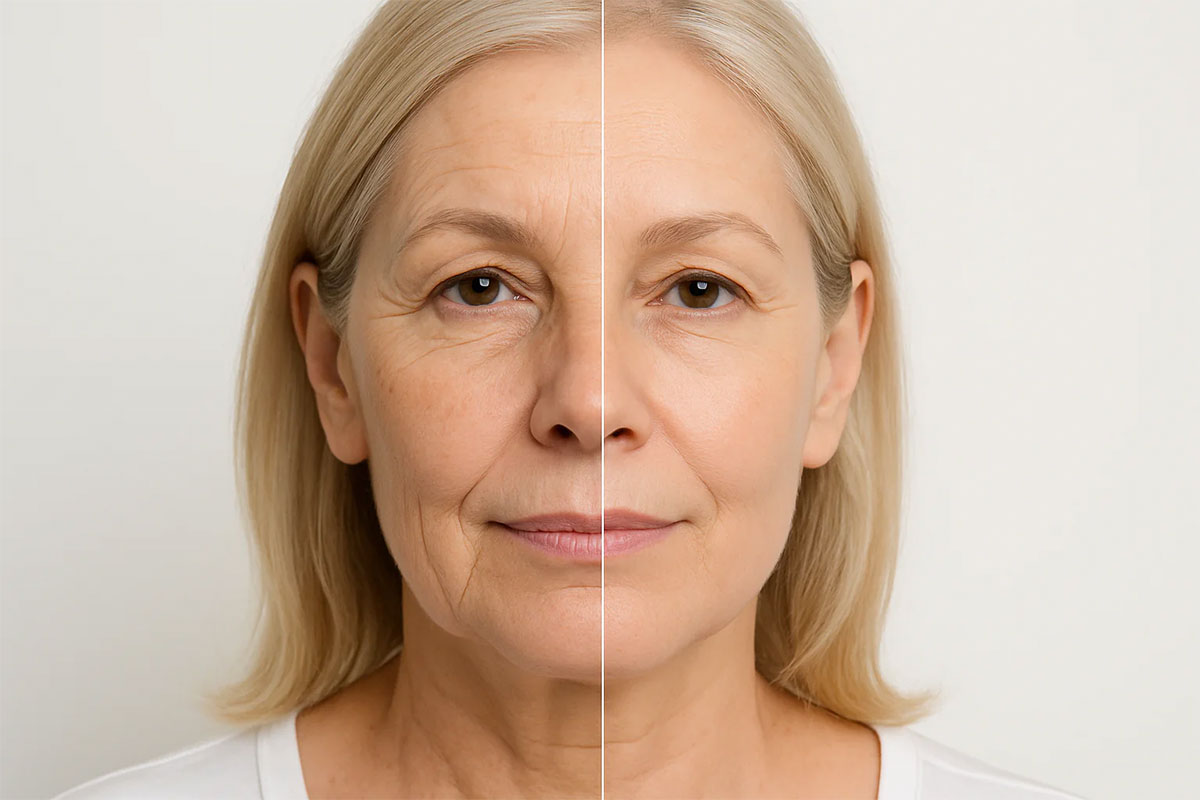The Ultimate Guide to Peptides for Glowing Skin

In today’s world, skin health is more than just beauty — it’s a reflection of overall wellness. From fine lines to skin elasticity, many factors affect the health of your skin. Luckily, peptides have emerged as a game-changing solution for glowing, youthful skin.
Whether you’re a skincare enthusiast or someone looking for effective wellness solutions, this guide will explore everything you need to know about peptides for glowing skin, including their benefits, science, and how to use them for maximum results.
What Are Peptides?
Peptides are short chains of amino acids — the building blocks of proteins. They act as signaling molecules in the body, instructing skin cells to perform certain functions, such as repairing damaged skin, producing collagen, and improving elasticity.
In skincare, peptides are recognized for their ability to boost skin repair and rejuvenation, making them an essential ingredient for anyone seeking glowing skin.
How Peptides Work for Skin
Peptides work by penetrating the skin’s barrier and sending signals to skin cells. These signals can:
-
Stimulate collagen and elastin production.
-
Promote cell turnover.
-
Reduce inflammation.
-
Improve moisture retention.
The result is healthier, firmer, and more radiant skin.
Benefits of Peptides for Glowing Skin
Using peptides for skincare provides multiple benefits, including:
1. Improved Skin Elasticity
Peptides stimulate collagen production, which keeps skin firm and elastic, reducing sagging and fine lines.
2. Reduced Wrinkles
By encouraging collagen and elastin production, peptides help smooth wrinkles, resulting in youthful skin.
3. Better Hydration
Certain peptides improve the skin barrier, locking in moisture and keeping the skin hydrated for longer.
4. Enhanced Skin Repair
Peptides support the skin’s natural repair process, which is especially important for damaged or aging skin.
5. Even Skin Tone
Regular use of peptide-based products can reduce skin discoloration and promote a radiant, even skin tone.
Types of Peptides Used in Skincare
There are several types of peptides used in skincare products, each with unique benefits:
-
Signal Peptides — Stimulate collagen and elastin production.
-
Carrier Peptides — Deliver trace elements like copper to skin cells for repair.
-
Enzyme Inhibitor Peptides — Slow down the breakdown of collagen.
-
Neurotransmitter-Inhibitor Peptides — Relax facial muscles to reduce fine lines.
Why SNAP-8 Is the Perfect Choice for Peptides for Glowing Skin
At Only Peptide, we believe in offering products that deliver results. One such product is SNAP-8, a powerful peptide specifically designed to rejuvenate your skin.
What Is SNAP-8?
SNAP-8 is a neuropeptide that helps reduce the appearance of wrinkles and fine lines by relaxing facial muscle contractions. This makes it an excellent alternative to more invasive treatments.
Benefits of SNAP-8 for Skin
-
Reduces expression lines and wrinkles.
-
Improves skin smoothness.
-
Enhances skin elasticity.
-
Supports overall skin health for a youthful glow.
How to Use SNAP-8
For best results, apply SNAP-8 as directed in your skincare routine. Combine it with other peptide-rich products for optimal benefits.
💡 Pro Tip: For glowing skin, consistency is key. Use SNAP-8 daily to see long-term improvements.
Purchase SNAP-8 now to experience the benefits of peptides for glowing skin: Only Peptide SNAP-8
How to Incorporate Peptides into Your Skincare Routine
Here’s how you can incorporate peptides into your daily regimen:
-
Cleanse — Start with a gentle cleanser to remove dirt and oil.
-
Apply Peptide Serum — Use a peptide-rich serum like SNAP-8 for maximum absorption.
-
Moisturize — Lock in hydration with a nourishing moisturizer.
-
Sunscreen — Protect your skin from UV damage.
For optimal results, peptides should be part of your daily skincare routine, just like cleansing and moisturizing.
The Science Behind Peptides for Glowing Skin
Research shows that peptides stimulate collagen production, essential for skin strength and elasticity. Collagen production declines with age, leading to wrinkles and sagging skin. Peptides counteract this process by signaling the skin to produce more collagen, effectively reversing signs of aging.
Studies also suggest peptides improve skin hydration and barrier function, helping maintain healthy skin over time.
Peptides vs Other Skincare Ingredients
Peptides offer benefits that other skincare ingredients, like retinol or hyaluronic acid, can’t provide alone:
-
Retinol — Works to speed cell turnover but can cause irritation.
-
Hyaluronic Acid — Hydrates but does not stimulate collagen production.
-
Peptides — Signal skin to repair itself naturally with minimal irritation.
The best results often come from combining peptides with other active ingredients for a holistic skincare approach.
FAQs About Peptides for Glowing Skin
Q1: Are peptides safe for all skin types?
Yes. Peptides are generally safe for all skin types and cause minimal irritation.
Q2: How soon can I see results?
With consistent use, visible improvements in skin texture and elasticity can be seen within 4–8 weeks.
Q3: Can I use peptides with other skincare ingredients?
Yes, peptides work well with most skincare ingredients, especially antioxidants and moisturizers.
Conclusion
Peptides are revolutionizing skincare by offering a powerful, science-backed solution for glowing skin. By stimulating collagen, improving hydration, and repairing skin, peptides give you a healthier, youthful complexion.
For those serious about improving their skin, Only Peptide’s SNAP-8 is a must-try. Designed for optimal results, SNAP-8 offers the benefits of peptides in a potent, effective formula.
✨ Experience the power of peptides for glowing skin. Purchase SNAP-8 today and transform your skincare routine.
Only Peptide SNAP-8
Discover Only Peptide :
Only Peptide offers premium peptide supplements designed for glowing skin, fitness recovery, and overall wellness. Powered by science, crafted for results.
Website: www.onlypeptide.com
Email: onlypeptide@gmail.com
Instagram: @onlypeptide
Facebook: Only Peptides
